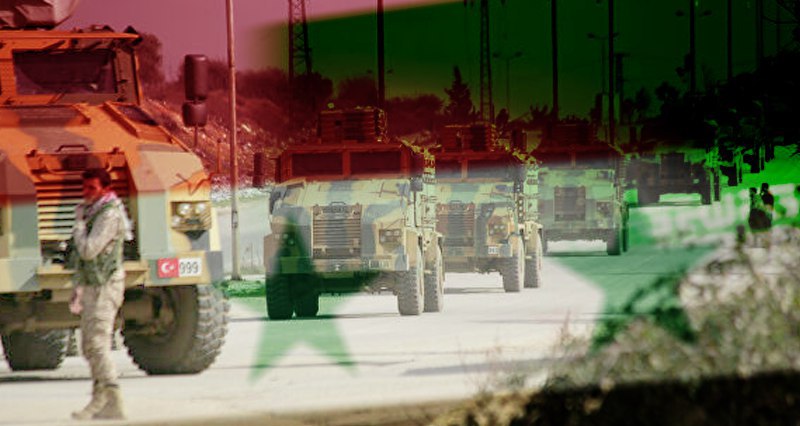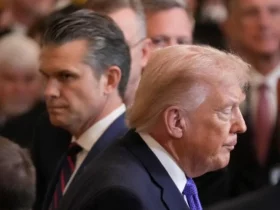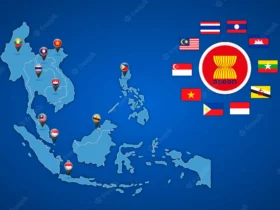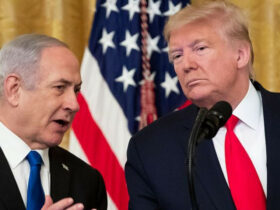As the situation in Syria becomes more and more incomprehensible, it becomes critical that we return to simple facts and over-arching explanations; in other words, we must separate the wheat from the chaff.
Let us start with the following:
Our soldiers were targeted in an attack in the Idlib district of Syria. Although there have been many hopeful statements from Ankara and Moscow, it is clear that Turkish-Russian-Iranian relations, and the Ankara-Damascus dialogue in general, has been severely damaged.
The Turkish Armed Forces (TAF) responded under the right of retaliation as prescribed by international law. This retaliation has since been taken a step further, however, and the government has now declared a military operation against the PKK/YPG terrorist organizations and the Syrian Government called operation Spring Shield.
Turkey has called on the United States and EU to intervene in Idlib. When these calls were left unanswered, refugees in Turkey were directed to the Greek border in order to pressure Europe into action.
The martyrdom of our soldiers in Idlib has raised the question of Turkey’s return to the Western camp after failing to sustain a “politics of balance.” This policy was pursued more heavily after the failed coup attempt on July 15 2016 which pushed Turkey to grow closer to its neighbors in the region.
https://uwidata.com/8438-last-week-in-turkey-idlib-the-beginning-of-a-new-war/
The political balance topples in Idlib
Turkey’s attempt to maintain a “politics of balance” has been ongoing for 60 years, but has been a central focus for the last 5– however, the situation in Idlib has made it impossible to continue this policy.
Nonetheless, supporters of the Turkish government continue to claim that a politics of balance is being successfully implemented. At the same time, figures from among the opposition parties say that the ruling Justice and Development Party (AKP) has disturbed the political balance by drawing too close to Russia.
Both sides continue to base their outlooks and policies on Cold War paradigms, and still believe in striking a balance between Moscow and Washington. The only real dispute between them regards which side of this “balance” Turkey should rely on more.
The way out of Idlib
Turkey has no chance to escape the situation in Idlib if it continues to pursue a politics of balance. The problem is far beyond what we are capable of handling on our own. All forces in the region need to come together to find a joint solution.
https://uwidata.com/8387-and-yet-it-moves-turkeys-eurasian-future/
At this point, the next steps taken by Moscow, which stands between Ankara and Damascus, are of central importance:
1.Moscow needs to be told firmly that we will not tolerate a similar attack against our troops in Idlib.
2.Turkey’s concerns about the migration wave from Idlib and the PKK/YPG terrorist organizations settled at East of the Euphrates River need to be taken up with Moscow. It will be impossible to find common ground unless Turkey’s concerns are understood by Moscow.
Erdogan insists that the Turkish Army is in Northern Syria to stop the corridor of terrorism. The army’s presence in Idlib is also indirectly justified as a part of the ongoing struggle against the PKK/YPG.
If Russian politicians make some moves against the PKK/YPG, Turkey might be willing to make concessions with regard to Idlib. Without this kind of substantive gesture, it would be delusional to expect the normalization of Turkish-Russian relations.
On the other hand, the government in Turkey needs to understand that:
1.Turkey’s lack of flexibility over Idlib has made them fragile domestically and isolated them internationally.
2.The pursuit of a “politics of balance” between Russia and the United States has become absurd and is fully discredited.
3.Just as the situation in Idlib is seen in relation to the broader geopolitical whole, it is critical that Turkey understand that Syrian and Eastern Mediterranean politics must also be seen in relation to the whole.
As long as the government continues to swim against the current, our country is likely to find itself in a worse and worse position. If things do not change, the Turkish government could be faced with an existential challenge.
If we want to be successful in our struggle against the PKK, PYD, FETO and other similar organizations and to protect our country’s sovereignty and territorial integrity, we must normalize relations with our neighbors.
https://uwidata.com/8353-idlib-collapse-of-the-politics-of-balance/
Luckily, Turkey has powerful traditions to look to in such difficult times. The founding principles of the Republic and the strategy of international friendship inherited from Ataturk can help us weather the storm.
Continuing to struggle for rapprochement with NATO can only lead us to destruction. Our thoughts and prayers are with the Turkish Nation.

















Leave a Reply